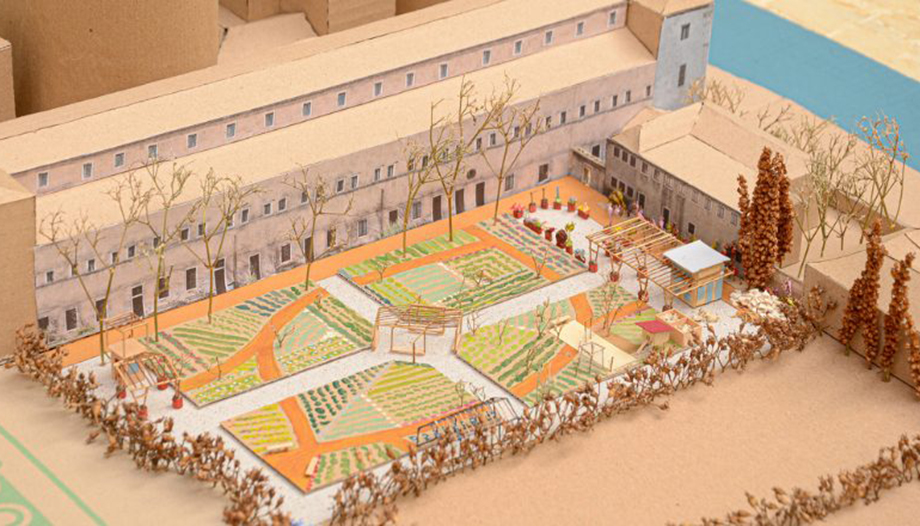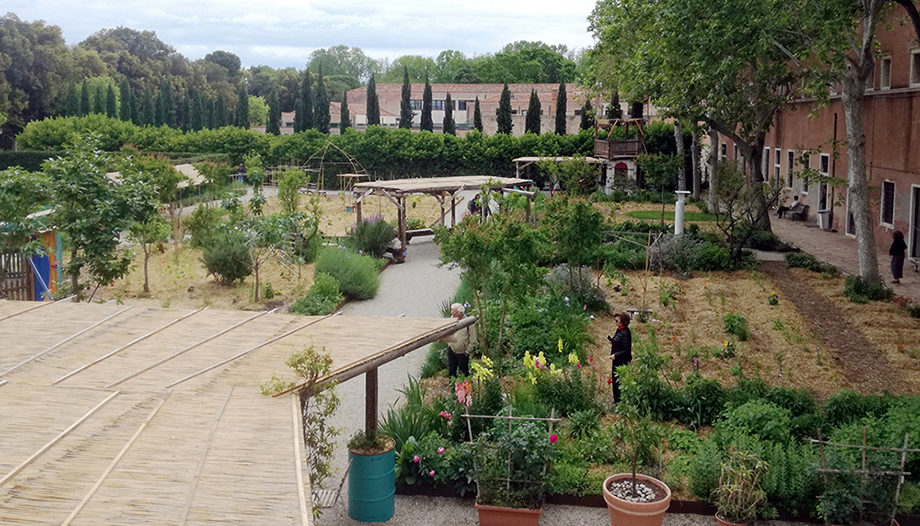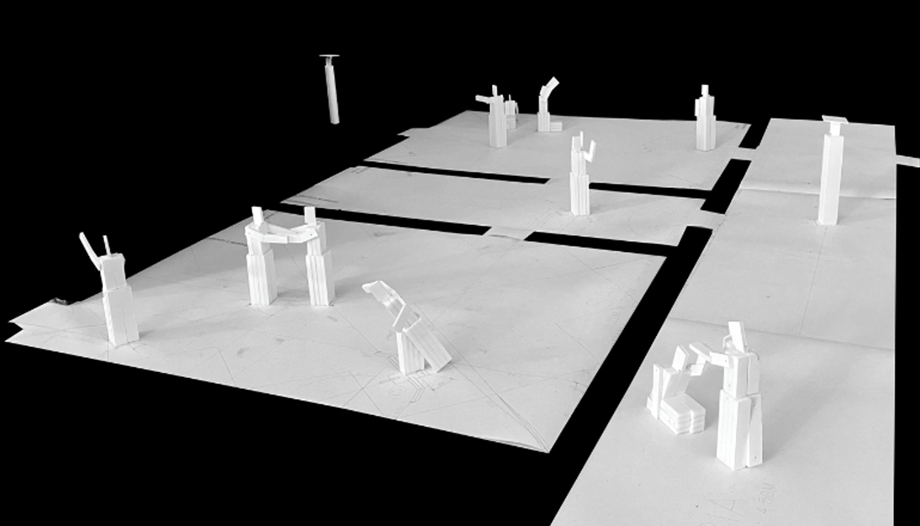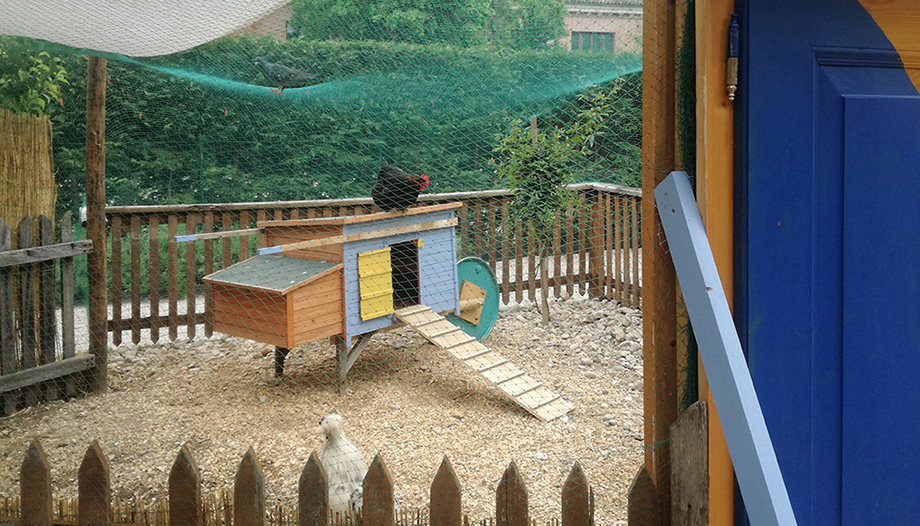– Supernatural Venice Biennale of Architecture is a powerful showcase to present the latest trends in this discipline worldwide. During the last decades, the hottest topics have become the statements to design provocative and innovative proposals that combine social, political and, in many cases, ideological dimensions.
In this exhibition, architecture is presented from its most propositional facet, making the more operational aspects take a back seat. What matters in the end is not so much the answer, but the way in which the curators of the biennials and each of the local curators are able to connect with fundamental issues of our society and culture.
In 2018, lhe Holy See had the opportunity to participate in the 16th edition of the biennial by Cardinal Gianfranco Ravasi and curated by Francesco Dal Co and Micol Forti. Their proposal, set on the lush island of San Giorgio Maggiore, was materialized with 10 small artifacts designed by prestigious architects who inquired about places of worship. Norman Foster, Eduardo Souto de Moura and Smiljan Radic, among others, were in charge of erecting different constructions called chapels, although without pretending, a priori, to be spaces for liturgy. These facilities are still available to visit.
From a purely aesthetic point of view, the result was somewhat disturbing. The premises given by Dal Co were to realize a small-scale intervention with the presence of an altar element and an ambo element for a worship that, as the curator pointed out, should be completely open, since "total freedom is the representation of any spirituality".
This set of interventions, beyond the suggestive nature of the spaces built, reveals a series of problems that question the ultimate meaning of the purpose of the pavilion, which, ultimately, should represent the concerns of the Holy See and, therefore, of the Catholic world. In most cases, a sort of abstract crosses and empty assembly spaces are reminiscent, as if it were a ruin, of a liturgical space.
Iconography is conspicuous by its absence, as if the figurative overlay had accidentally disappeared, leaving in the hands of architecture the responsibility of maintaining the vestige of something that was (or wanted to be) but is no longer.
2023, new participation
In 2023, the Holy See will once again be a guest of honor to incorporate his proposal to the founding concept of the XVIII Biennial, curated by Ghanaian architect Lesley Lokko, whose motto is "The laboratory of the future" and whose themes connect with the urgencies that afflict the planet, highlighting among others decarbonization and decolonization.
The Dicastery for Culture and Education, under the guidance of Cardinall José Tolentino de Mendonçawas the sponsor of the Vatican pavilion. Roberto Cremascoli was the curator who conceived the exhibition complex in the Abbey of San Giorgio Maggiore. Alvaro Siza and Studio Albori participated in the exhibition.
The proposal, a priori, seems suggestive. All the words used to describe the intentions in the inaugural speeches, interviews and descriptions of the project are charged with a compelling illusion to manifest the importance of the common home.
Cardinal Tolentino speaks of the garden as a cultural act, of the practicality of the integral ecology enunciated in Laudato Siand of universal welcome and fraternity - Fratelli Tutti - as the driving force of the project. An impeccable political and poetic manifesto.
The pavilion of the Holy See
The visit to the intervention developed in the garden of the abbey complex is somewhat disappointing. Although the model made by Studio Albori slightly suggests an arrangement of the meadow as if it tried to represent a cultivated territory, the reality is a rather bland, wild and uninteresting vegetal space.

The ordering of nature according to a higher purpose could be a leitmotiv to show the inevitable intervention of man in the world, while respecting the natural environment, which is nothing more than being grateful for a gift that, since ancient times, has been given to us.
The pieces that accompany the garden layout do not arouse interest either. Various stalls built precariously with wood and reeds disconnect the visitor with the pavilion's promoter and his message, or perhaps confuse him in a sort of resting space.
The culmination is a chicken coop that, although it could be a Petrine reference, encloses with fences and nets a group of birds, which are the only reference to animal life, besides the visitor himself.

The opportunity to use the garden as a trigger for a sublime project for the Holy See might have been seemingly obvious.
Understanding the world as a second Eden in order to become aware of the importance of Creation, just as medieval Christians understood the Hortus Coclusus, which was nothing more than the representation of an enclosed garden that referred to Mary's virginity and the representation of the intimacy of the Virgin and her son.
It seems that these topics can no longer be discussed because they are no longer a problem of the Church. It also seems that connecting the foundational aspects of Christianity with the daily problems of man is of no interest at this time.
The lack of a clear and univocal message through art is compensated by the intervention of the master architect Alvaro Siza. Inside the abbey complex, a set of wooden bodies designed by the Portuguese architect represents, as if it were a choreography, the event of the meeting and the embrace.

We don't know what the Holy See's next intervention at the Venice Architecture Biennale will be like. What we do know is that we live in a world in which architecture has much to say. Perhaps it is appropriate to recall the words of Leon Battista Alberti: architecture perfects the created world when it is capable of making people better.
Architect





 The Holy See participates at the Venice Biennale
The Holy See participates at the Venice Biennale





